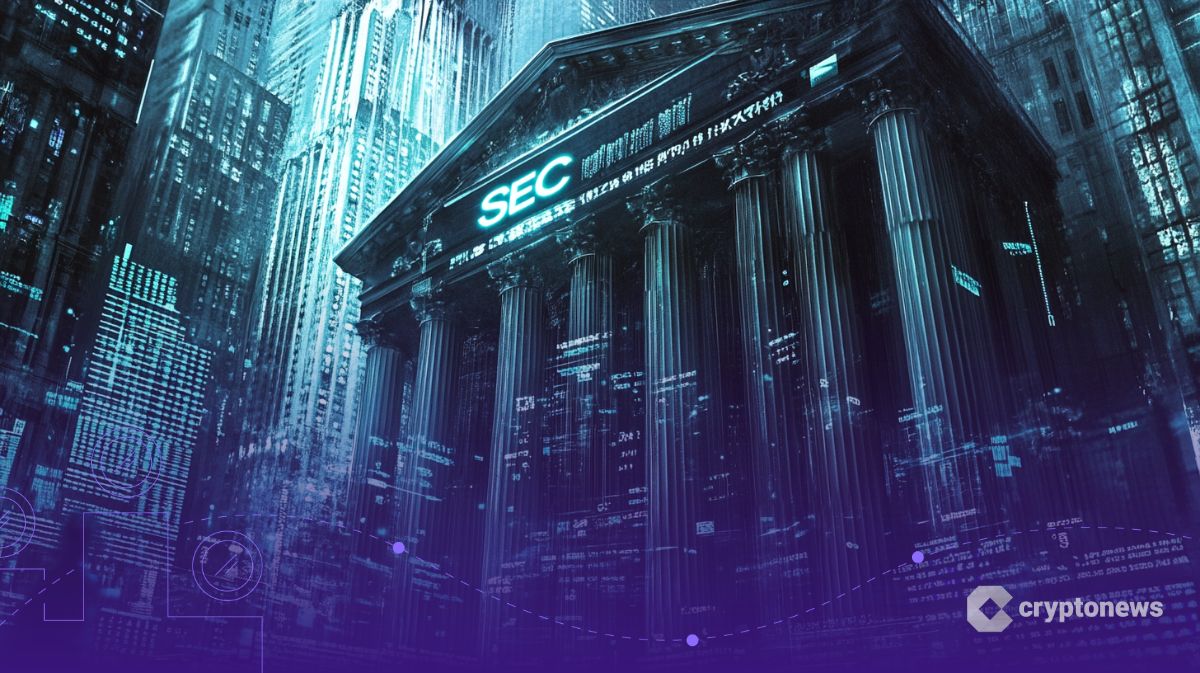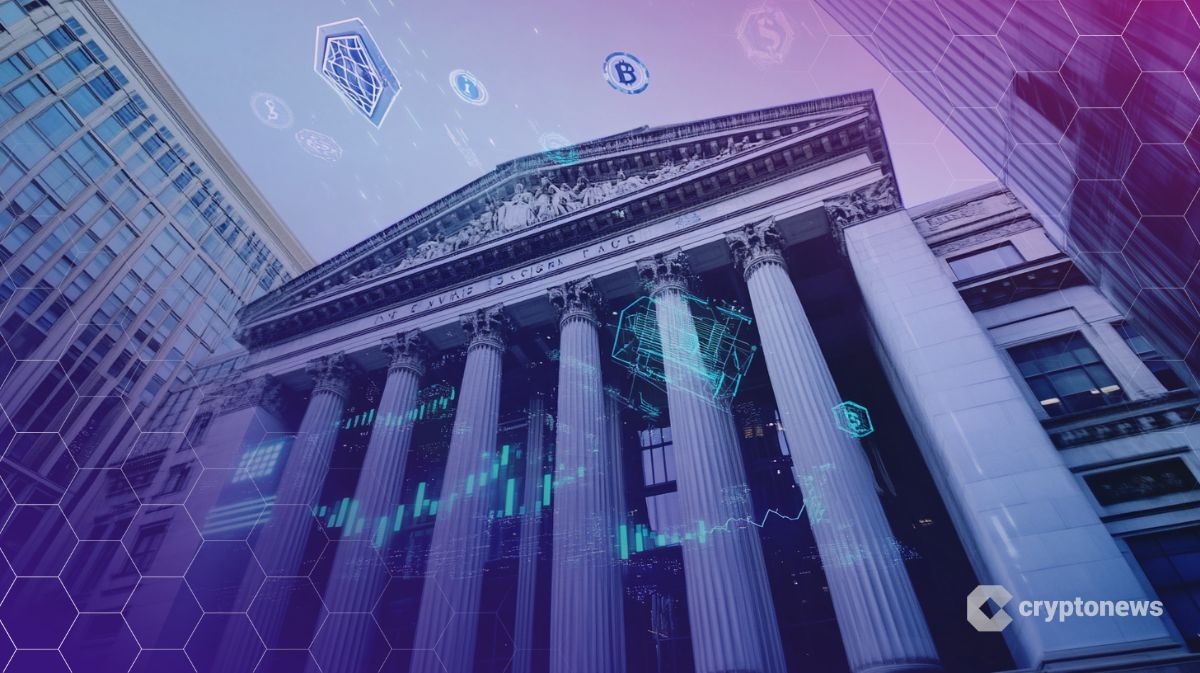Robinhood Pushes SEC for Tokenized RWAs as $30 Trillion Market Looms

Key Takeaways:
- Robinhood has asked the SEC to formally recognize tokenized assets like stocks and bonds as equivalent to their traditional forms.
- The proposed framework would allow broker-dealers to trade and custody these tokens under existing U.S. securities rules.
- The plan includes the new platform RRE to combine off-chain matching with on-chain settlement and integrates identity and AML checks.
Robinhood has submitted a 42-page proposal to the U.S. Securities and Exchange Commission (SEC), requesting the creation of a federal regulatory framework for tokenized real-world assets (RWAs), according to a May 20 report by Forbes.
The proposal, as outlined in the report, advocates for tokens representing assets like stocks or bonds to be treated as legal equivalents to their traditional forms. It also calls for a national standard to replace the current patchwork of state-level rules governing securities.
Robinhood Details Compliance Plan for Tokenized Asset Trading
Robinhood’s proposed platform, the Real World Asset Exchange (RRE), would use off-chain trade matching for speed and on-chain settlement for transparency.
According to Forbes, the system incorporates identity and anti-money-laundering tools from Jumio and Chainalysis to comply with global KYC/AML requirements.
“This proposal could mark the first time a U.S.-regulated broker has laid out a viable path for bringing trillions of dollars in assets onchain—without compromising regulatory integrity,” said Mati Greenspan, founder of Quantum Economics.
“If the SEC embraces this, it’s a signal to the world that tokenization has a legitimate seat at the traditional finance table,” said Greenspan.
The SEC has not yet responded to the filing. Legal observers say that Robinhood’s push for asset-token equivalency could influence broader regulatory interpretations, including issues related to taxation and jurisdiction.
However, actual implementation would depend on inter-agency cooperation and market uptake.
Global Push for Regulated Tokenization
Robinhood, best known for its role in the 2021 retail trading boom, is positioning the RRE platform as part of a longer-term transition toward digital asset infrastructure. No timeline for SEC review or public feedback has been disclosed.
RWA tokenization is projected to reach $30 trillion by 2030, driven by demand for faster settlement, continuous market access, and embedded compliance. Robinhood’s proposal reflects a broader push to bring these assets into regulated financial systems, a shift that could reshape how traditional markets operate.
Other jurisdictions are advancing similar efforts. For example, regulators in Singapore and the UK are testing tokenized funds and bonds, exploring how blockchain infrastructure can serve institutional markets without discarding legal safeguards.
Frequently Asked Questions (FAQs)
JPMorgan, Franklin Templeton, and Singapore’s MAS have all run limited pilots, mostly focused on bonds or fund shares in controlled settings.
Fragmented oversight. The SEC, CFTC, and state agencies all play a role, but there’s no unified rulebook for tokenized assets, slowing adoption and raising compliance risk.
Yes. A formal SEC response would give other brokerages a clearer sense of what’s legally possible and where the red lines are.
The post Robinhood Pushes SEC for Tokenized RWAs as $30 Trillion Market Looms appeared first on Cryptonews.
Read More

SEC Charges Crypto Project Unicoin Over $100M Token Sale Fraud
Robinhood Pushes SEC for Tokenized RWAs as $30 Trillion Market Looms

Key Takeaways:
- Robinhood has asked the SEC to formally recognize tokenized assets like stocks and bonds as equivalent to their traditional forms.
- The proposed framework would allow broker-dealers to trade and custody these tokens under existing U.S. securities rules.
- The plan includes the new platform RRE to combine off-chain matching with on-chain settlement and integrates identity and AML checks.
Robinhood has submitted a 42-page proposal to the U.S. Securities and Exchange Commission (SEC), requesting the creation of a federal regulatory framework for tokenized real-world assets (RWAs), according to a May 20 report by Forbes.
The proposal, as outlined in the report, advocates for tokens representing assets like stocks or bonds to be treated as legal equivalents to their traditional forms. It also calls for a national standard to replace the current patchwork of state-level rules governing securities.
Robinhood Details Compliance Plan for Tokenized Asset Trading
Robinhood’s proposed platform, the Real World Asset Exchange (RRE), would use off-chain trade matching for speed and on-chain settlement for transparency.
According to Forbes, the system incorporates identity and anti-money-laundering tools from Jumio and Chainalysis to comply with global KYC/AML requirements.
“This proposal could mark the first time a U.S.-regulated broker has laid out a viable path for bringing trillions of dollars in assets onchain—without compromising regulatory integrity,” said Mati Greenspan, founder of Quantum Economics.
“If the SEC embraces this, it’s a signal to the world that tokenization has a legitimate seat at the traditional finance table,” said Greenspan.
The SEC has not yet responded to the filing. Legal observers say that Robinhood’s push for asset-token equivalency could influence broader regulatory interpretations, including issues related to taxation and jurisdiction.
However, actual implementation would depend on inter-agency cooperation and market uptake.
Global Push for Regulated Tokenization
Robinhood, best known for its role in the 2021 retail trading boom, is positioning the RRE platform as part of a longer-term transition toward digital asset infrastructure. No timeline for SEC review or public feedback has been disclosed.
RWA tokenization is projected to reach $30 trillion by 2030, driven by demand for faster settlement, continuous market access, and embedded compliance. Robinhood’s proposal reflects a broader push to bring these assets into regulated financial systems, a shift that could reshape how traditional markets operate.
Other jurisdictions are advancing similar efforts. For example, regulators in Singapore and the UK are testing tokenized funds and bonds, exploring how blockchain infrastructure can serve institutional markets without discarding legal safeguards.
Frequently Asked Questions (FAQs)
JPMorgan, Franklin Templeton, and Singapore’s MAS have all run limited pilots, mostly focused on bonds or fund shares in controlled settings.
Fragmented oversight. The SEC, CFTC, and state agencies all play a role, but there’s no unified rulebook for tokenized assets, slowing adoption and raising compliance risk.
Yes. A formal SEC response would give other brokerages a clearer sense of what’s legally possible and where the red lines are.
The post Robinhood Pushes SEC for Tokenized RWAs as $30 Trillion Market Looms appeared first on Cryptonews.
Read More

